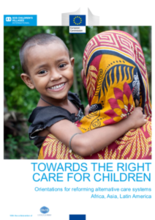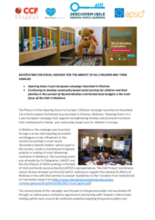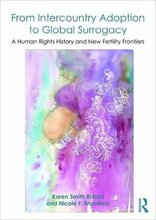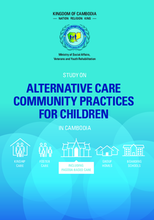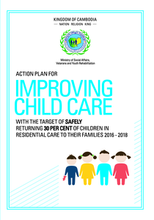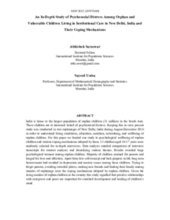Displaying 931 - 940 of 1510
The aim of the paper is to explore selected pertinent challenges that impede child and youth care centres (CYCCs) from providing holistic support and care to children found in need of care as stated in the Children’s Act No. 38/2005.
The paper presents a detailed analysis of the Russian official statistics for orphans and children placed out of parental care.
The general objective of this study was to conduct a research on the possible issue of institutionalisation in six South and Central American, Asian and African countries in order to strengthen the knowledge of the European Commission on the nature, the extent and scope of institutionalisation and feasibility of de-institutionalisation (alternative care for children).
This report from Opening Doors discusses the Opening Doors II pan-European campaign launched in Chisinau.
This newsletter issue from Senator Linda Reynolds of Western Australia, written in conjunction with Kate van Doore of Griffith Law School, was written in preparation for the Australian Parliamentary inquiry on modern slavery and describes the ways in which orphanage trafficking constitutes modern-day slavery.
Extracting on chronologic data, this book discusses the politics and practice of intercountry adoption starting with the state international adoption to in the 1950s continuing to present-day adoption practice and protections.
This paper presents qualitative findings of the resilience processes of young women who have left the care of Child and Youth Care Centres in Gauteng, South Africa.
This study commissioned by the Ministry of Social Affairs, Veterans and Youth Rehabilitation of the Kingdom of Cambodia and UNICEF Cambodia sheds light on how different forms of alternative care are being used in the community.
This Action Plan for improving child care, with the target of safely returning 30 per cent of children in residential care to their families 2016 - 2018, was developed to support the implementation of the Ministry of Social Affairs, Veterans and Youth Rehabilitation (MoSVY) Work Platform 2014–2018 and the Sub-Decree 119 on the Management of Residential Care Institutions, which was endorsed on 11 September 2015.
This study examined the psychological wellbeing of children in institutions and their various coping mechanisms.

